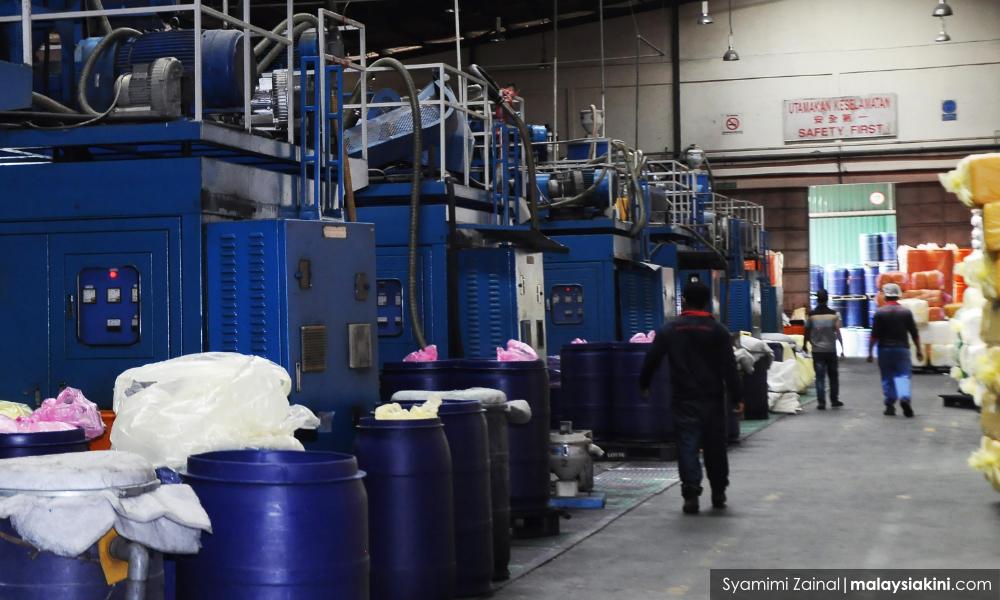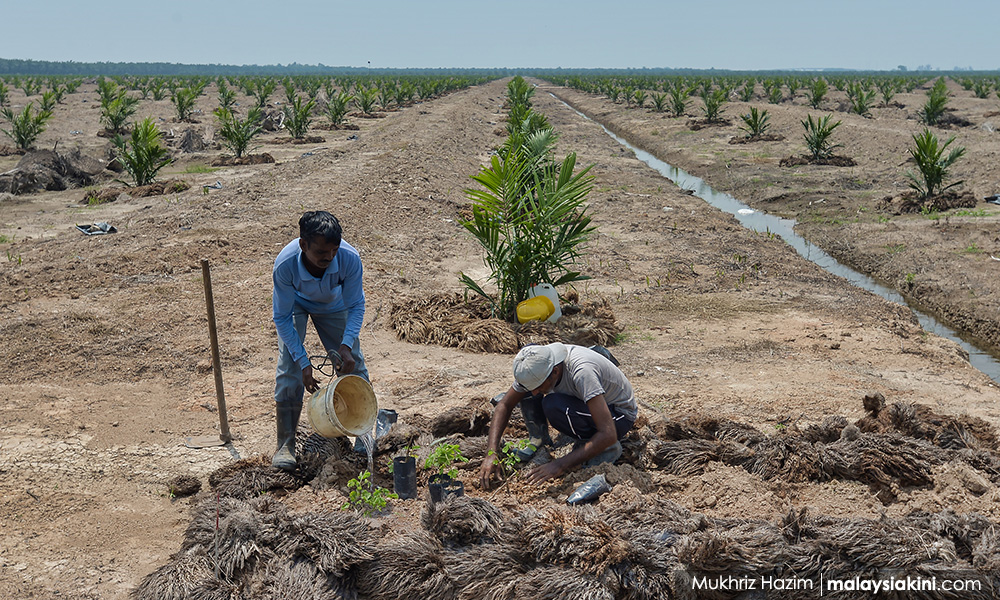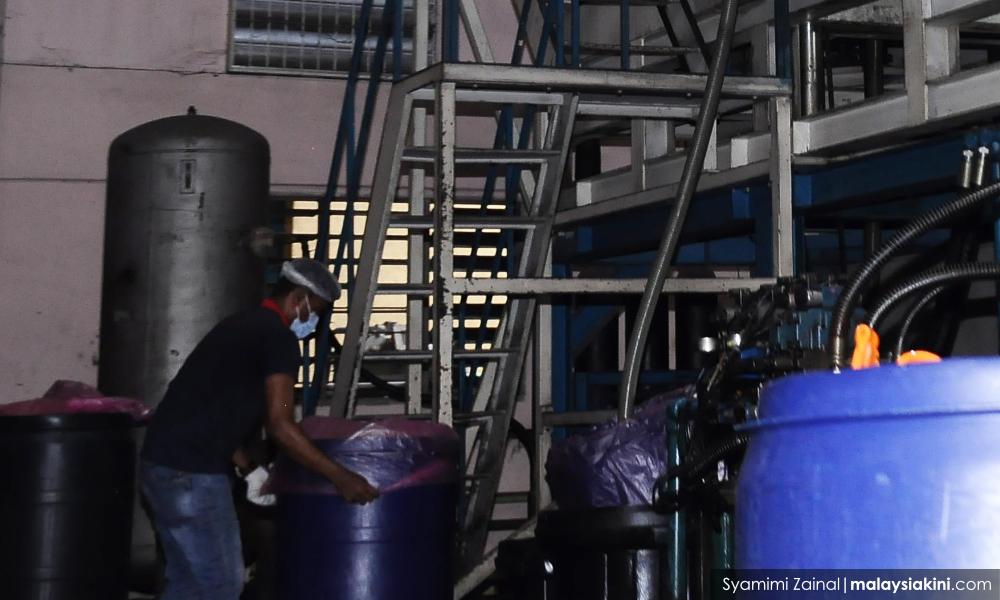Former Sungai Siput MP Dr Michael Jeyakumar Devaraj is relieved by the government’s announcement that the minimum wage is set to be increased by RM300 on May 1, but is sounding the reminder that even the new figure of RM1,500 is substantially short of a living wage.
In an interview with Malaysiakini, he called for the government to strengthen social protections and consider introducing a universal pension scheme.
“Yes, a RM300 increase is a good step but it is still far short of a living wage.
“A few years back, Bank Negara came out with an estimate that a family with two schoolgoing children living in KL would need about RM6,000 a month to meet all their needs adequately.
“So even the new figure of RM1,500 doubled with both parents working is only RM3,000, nowhere near the ‘living wage’ figure recognised by Bank Negara,” said Jeyakumar.
He said eventually implementing a fair living wage is one of the two main modalities the government can use to share the wealth of the nation with the workers who helped create it.
“The other modality is by strengthening the social protection net. A universal pension scheme that pays all individuals over 65 years of age RM300 per month if they are not already receiving a government or Socso pension would be a very good way of sharing the wealth of the country.
“This would address the dire straits that many retired people find themselves in as their savings do not last more than a few years after stopping work.”
He also called for the government to look into affordable homes for the working class.
“PSM has found that the B40 families – currently those with a household income of less than RM3,500 per month - are in no position to buy a house of their own. Attempts by them to do so would impair the attainment of other basic needs such as nutrition.

“PSM’s proposal is to provide PPR housing for the B40 to rent at below RM200 per month in all the towns in Malaysia. If the cost of rent can be capped thus, the remainder of the family income can be used to procure food and education, etc.”
He said other aspects of the social protection net are high quality, well-subsidised health care for all citizens and affordable public transport.
Who’s going to pay?
While such blanket suggestions are well-intentioned, it must be recognised that Malaysia’s economy has been in a prolonged slump for the past two years.
The question of who will make sacrifices so that workers can enjoy better living standards has naturally arisen, and it’s no surprise to Jeyakumar that groups such as the Malaysian Employers Federation (MEF) and the Federation of Malaysian Manufacturers (FMM) were so quick to object.
“It is to be expected. The employers would want to keep costs as low as possible and they will fight tooth and nail to keep wages down. So the government has to independently verify whether the howls of protest from the employers are based on the real situation or not.
“We should not take their protests at face value and accept them as true,” said Jeyakumar.
He said at the same time, we need to accept that our businesspersons are operating in a very competitive environment especially after the Asean Free Trade Agreement reduced import tariffs for trade in goods among member countries to zero percent for more than 97 percent of goods manufactured in the region.

“This means if wages in Malaysia are hiked up too much, the manufacturing sector might lose both the export market as well as the Malaysian market to competitors from other Asean countries as Malaysian products are now more expensive compared to Vietnamese or Thai products.
“However, I do not believe that the RM300 increase being planned for May 2022 will have such an effect. But we need a team of independent economists to study this phenomenon and advise whether our wage policy has to be tweaked.
“We also need to impress on the MEF and the FMM that increasing Malaysian wages will deepen the domestic market and create more business opportunities for the business community,” he said.
Regional cooperation
Jeyakumar, who served as MP from 2008 to 2018, said Malaysia needs to talk to other Asean nations about increasing wages across the region in a way that does not put any one country at a comparative disadvantage.
“For example, Cambodia’s minimum wage is about RM700 per month. If we insist they also increase to RM1500, it would be too difficult for them as they need their lower minimum wage to compensate for the deficiencies in their infrastructure facilities, etc.
“But we could suggest to them that they should mirror our 25 percent increase and go to RM875. That way, their B40 benefit, their domestic market expands and provides more opportunities for their SMEs, and at the same time their larger businessmen do not lose out in the competitiveness if this 25 percent hike is done in all Asean countries,” he suggested.
“The problem that all governments now face in this liberalised international financial system is that they are being held hostage by the capitalists who have invested in their country.
“Capitalists can now easily take out their capital and invest in other countries if they feel that the government isn’t friendly to business.
“This has led to a fall in corporate tax rates in most countries around the world over the past 30 years, and a lack of government funds for social protection schemes and for transitioning to a green economy,” he explained.

Jeyakumar said that it is one of the most pressing issues that the people of the world have to address - how can a larger share of the wealth created by society be acquired by the government to address climate change and income disparity?
“It needs a systemic response and one that is applicable all over the world like for example, the minimum 15 percent tax on large multinational corporations that was recently agreed to.
“That was a good start but it isn’t enough for the scale of the problems – it has to be expanded so that a larger share of what the top one percent are getting is taxed.”
He suggested an act similar to the UK’s unexplained wealth order in which legislation puts the onus on public officials to account for the sources of their wealth.
Worker issues
As for Malaysian workers themselves, Jeyakumar reminded the government that the union movement in Malaysia has been hamstrung by increasingly restrictive laws ever since the late 1940s.
“Unions could play a useful function in the economy by bringing the voices of workers to management, improving the governance of businesses thus ‘democratising’ the workplace. But they have not been allowed to do so in Malaysia.
“I think we need to re-set the situation. Some of the ideas we need to consider - automatic unionisation.
“Every workplace should, by law, have a union so that workers have an avenue to communicate with their employers - some sort of profit-sharing formulae between workers and their company so that both the owners and the workers have a stake in improving the performance of the business.”

Once again, however, a practical problem is that the Malaysian workforce is actually over-reliant on migrant workers, many of whom are undocumented through no fault of their own.
“There is an over-dependence on foreign labour, especially undocumented foreign labour who are even cheaper. (It was estimated before the Covid epidemic that there were four million undocumented foreign workers and two million documented ones in Malaysia).
“And this co-exists alongside significant under-employment of the B40 Malaysians. In rural Sungai Siput, so many of the Malay men I know are chronically under-employed (and perpetually short of money) while foreign workers are hired by contractors to harvest oil palm in the estates, and the factory zones are packed with foreign workers,” he said.
According to Jeyakumar, employers tend to prefer foreign workers as they are more focused on their jobs and do not complain as much as Malaysian workers do.
“There are some who criticise Malaysians for not taking up these jobs. I think that it is unfair to expect Malaysian workers to put up with the ‘slave-like’ conditions that foreign workers have to put up with.
We need to regularise the labour market that has been distorted by the over-importation of foreign labour by labour agents/companies who make a tidy profit from each worker that they bring in.

“We need to introduce a system where local Labour departments make lists of working-aged adults who wish to work in factories, in plantations, and in the service sector together with their handphone details.”
He said with the new minimum wage of RM1500, factory work will now be more appealing to Malaysian workers.
He suggested that every establishment that wants to employ foreign workers must get a certification from the local labour department that there are no locals who are interested in that field of work in that locality before being allowed to bring in new foreign workers.
Jeyakumar also reminded the government that a blanket amnesty on undocumented migrants is still needed to address the worker population.
“Amnesty programs in the past have failed because the government usually specifies only certain sectors where these undocumented migrants can work legally and they outsource the process to one or more private entities which further subcontract it.
“This opens Pandora’s box where the agents to whom the process is outsourced forge the forms (for an extra fee of several thousand ringgit) to create the paperwork that the foreign worker is working the ‘correct’ sector when in actuality the worker is in another sector.
“So, the best thing would be to register them as and where they are and legalise them in whichever sector and job they are actually in.
“That would give the government some accurate baseline information to work from. Also, it removes the incentives for cheating and corruption,” he said. - Mkini




No comments:
Post a Comment
Note: Only a member of this blog may post a comment.